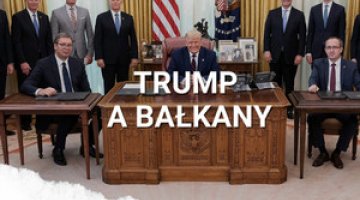Analyses
Pressure on Serbia to withdraw the draft resolution on Kosovo is increasing
German Foreign Minister Guido Westerwelle visited Serbia on 26 August as did his British counterpart William Hague on 31 August. Both ministers insisted the Serbian authorities withdraw the draft resolution on Kosovo, which is to be discussed at the UN General Assembly this September. Serbia, wishing to avoid a confrontation, will most likely try to change the text of the resolution following consultations with EU member states.
In response to the International Court of Justice’s opinion regarding the legality of the proclamation of independence by Kosovo, Serbia submitted a draft resolution on Kosovo on 28 July to the UN General Assembly. It criticises Kosovo’s proclamation of independence and appeals for the reopening of negotiations between Pristina and Belgrade, without however specifying the subject of such talks. Considering the strong offensive launched by Serbian diplomats, especially in African countries, the draft resolution may be accepted by the UN General Assembly.
The Serbian activity has met with a sharp reaction from “the five” (the USA, the United Kingdom, France, Germany and Italy), which see the independence of Kosovo as an irreversible fact and oppose any renewal of talks regarding this issue. For this reason they are demanding that Serbia withdraws the draft resolution. The German foreign minister Guido Westerwelle at the time of his visit to Serbia on 26 August even threatened to block the process of Serbia’s integration with the EU. Four days later, the British foreign secretary William Hague during his stay in Belgrade tried to convince Serbian politicians of the need to normalise relations with Kosovo. The Serbian authorities during the visits of both foreign diplomats showed their readiness to compromise on the subject of the resolution and to amend it in consultation with EU member states, ruling out, however, its complete withdrawal. A possible change of the resolution will be discussed by a Serbian delegation in Brussels at the beginning of September. <MarSz>




